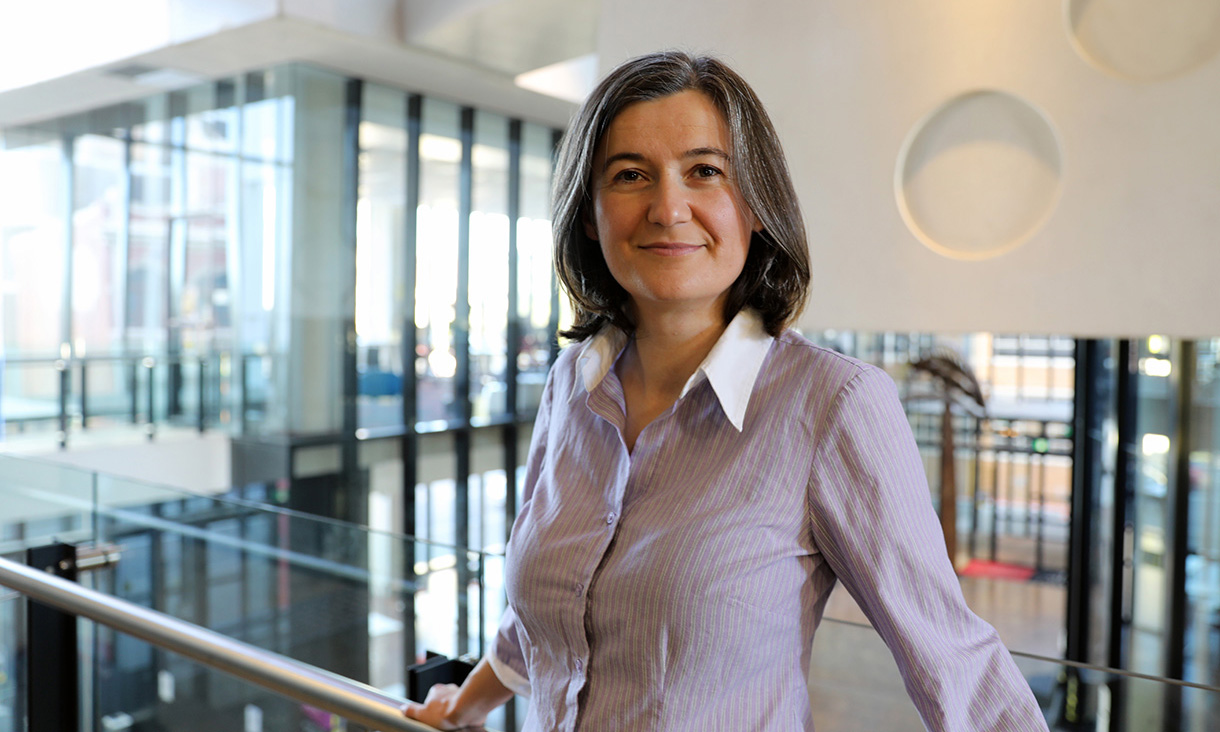Swinburne researcher asks why more women don’t study computer science

Dr Andreea Molnar’s research project will compare results across Australia and Germany to see what factors shape women’s decisions to enrol in computer science degrees.
In summary
- Dr Andreea Molnar, has been awarded the Anna Boyksen Fellowship at the Technische Universität München Institute for Advanced Study
- Dr Molnar’s project will provide an understanding of what motivates young women to study computer science or information technology
- It will compare results across Australia and Germany to understand to what extent the findings from the two countries are replicated
Despite increasing awareness and efforts made to attract women in computing, they are still poorly represented in the information technology (IT) field.
According to the European Commission’s Women in Digital scoreboard only 17per cent of IT specialists are women, and only 34 per cent of STEM graduates are women.
In 2020, about 25 per cent of Google, Apple, Facebook, Amazon, and Microsoft’s employees were female.
Senior lecturer at Swinburne’s School of Science, Computing and Engineering Technologies, Dr Andreea Molnar wants to pinpoint the factors leading to this lack of diversity.
She has been awarded the Anna Boyksen Fellowship at the Technische Universität München (TUM) Institute for Advanced Study, a public research institute in Germany.
The fellowship enables outstanding scientists from outside TUM to explore gender- and diversity-relevant themes in the context of the natural and engineering sciences together with a TUM research group.
Dr Molnar will collaborate with German computer scientist Professor Anne Brueggemann-Klein, Professor in Informatics from TUM. Professor Brueggemann-Klein created the Informatik-Forum Frauen group at TUM that works to promote agency and a feeling of belonging for people along all diversity dimensions in the Department of Informatics.
‘The lack of diversity in IT has repercussions for organisations and society in general,’ Dr Molnar says.
‘For almost four decades, various intervention programs, initiatives and events have been developed to address the lack of participation. However, to date, we know very little about what makes these programs successful.’
The research project will identify and characterise initiatives that promote IT among gender diverse school students in Germany. It will provide an understanding of what motivates young women to study information technology in general.
‘The project will also take personal, cultural and gender-related decision factors into account,' Dr Molnar says. 'It aims to provide a set of principles, best practices and action guidelines based on the characteristics of successful initiatives.’
Dr Molnar has previously worked with STEM education experts Swinburne’s Associate Professor Therese Keane and Professor Rosemary Stockdale from Griffith University on Identifying Australian High School Intervention Programs that influence first year female students to choose information and communication technology degrees.
Dr Molnar was also one of three outstanding STEM experts awarded a Science and Technology Australia Science meets Parliament Technology Scholarship in March 2021, which is sponsored by the Australian Academy of Technology and Engineering and Brighter.
‘What makes certain programs more successful than others and what other factors shape women’s decisions to enrol in computer science degree is still an area that requires further research,’ Dr Molnar says.
‘Our research is looking into both the existing interventions aimed at school students but also personal factors that influence them.’
The project will compare the results across Australia and Germany to understand to what extent the findings from the two countries are replicated.
-
Media Enquiries
Related articles
-

- Technology
- Science
- Engineering
Victorian students drive green energy transition through international hydrogen competition
Swinburne’s KIOSC, in collaboration with Horizon Educational and Gippsland Tech School, co-hosted the Hydrogen Grand Prix in Melbourne.Friday 26 July 2024 -

- University
The future of fashion: Swinburne launches groundbreaking tech-focused fashion course
Swinburne University of Technology is fusing high tech and high fashion to launch a new forward-thinking Bachelor of Design (Fashion).
Thursday 25 July 2024 -

- Technology
- Health
New MedTechVic prototypes to transform everyday lives of people with a disability
Swinburne’s MedTechVic has revealed three new prototypes designed through the joint Health-led Manufacturing Innovation Program, in partnership with the Australian Medtech Manufacturing Centre and Safer Care Victoria
Friday 19 July 2024 -

- Education
- Engineering
Transforming the lives of refugee engineers through the EPIC Program
Swinburne has been partnering with the Level Crossing Removal Project (LXRP) on the Engineering Pathway Industry Cadetship (EPIC) program, helping refugee engineers gain international qualifications for the Australian workforce through an 18-month paid cadetship program.
Thursday 20 June 2024 -

- Business
- Technology
Swinburne’s Luminate Pitch Night 2024 advances innovative ideas for a better world
Swinburne’s 2024 Luminate Pitch Night showcased market-ready ideas from 10 founders
Wednesday 12 June 2024

